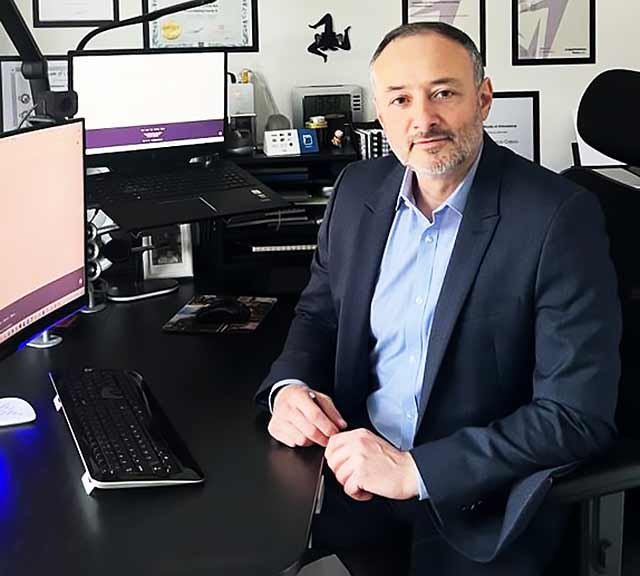Do I have anxiety or an anxiety disorder?
An anxiety disorder can be explained as a persistent level of anxiety which interferes with daily life, resulting in people becoming distressed and unable to function. It is an anxiety disorder which often evolves quickly into depression and commonly substance abuse of some kind; food over or under eating, alcohol consumption increases or drug taking.
For example, experiencing anxiety about meeting a friend in a new location, but still attending, would be anxiety but experiencing anxiety about meeting a friend in a new location and cancelling not just once but often, in favour of scenarios you can control, would be anxiety disorder. Anxiety disorders limit your life and place further impact on those close to you.
There is a vast spectrum of different types of anxiety, from day-to-day lifestyle anxiety to developed disorders. Whether it is anxiety about a job interview, or an inability to leave your home, the mind and body response is very much the same. Therefore, nobody needs to experience anxiety alone and for long. Online multi-discipline therapy is a quick and personalised means of overcoming your anxiety to face life’s challenges with peace and calmness.
How does online therapy help me overcome my anxiety?
The most common anxiety disorders for which people seek online therapy for are:
Generalised Anxiety Disorder (GAD)
The two major diagnosis requirements for GAD are excessive worry about life events and difficulty in controlling the world plus multiple other mental health symptoms consistent in appearance for over 6 months (depression or substance abuse for example)
Obsessive Compulsive Disorder (OCD)
Characterised by the presence of unpleasant obsession; intrusive thoughts which repeatedly enter the person’s mind, and also compulsions; repeated behaviour.
Agoraphobia
A fear from which escape may be difficult in the event of having a panic attack. Commonly thought of as people unable to leave their home, but agoraphobia can also apply to crowded places and some forms of transport where escape is difficult.
Panic disorder
Recurring unforeseen panic attacks plus at least 1 month worry about having a panic attack resulting in significant change in behaviour.
Body Dysmorphic Disorder (BDD)
Worrying about appearance and having a distorted view of own physical appearance.
Social anxiety disorder
Persistent fear of one or more performance situations. Worrying before and after events where the response to this worry is out of proportion to the ‘threat’ or activity.
Post-traumatic stress disorder (PTSD)
Follows a situation of catastrophic nature, including; violent personal assault, military combat, terrorist attack, natural disaster, rape, sexual assault or a car accident.
The list below of the different types of anxiety individual’s face can help to identify where you may be experiencing anxiety or anxiety disorders:
- Agoraphobia.
- Anticipatory anxiety.
- Body Dysmorphic disorder.
- Claustrophobia.
- Compulsive skin picking.
- Dental Phobia.
- Depersonalisation disorder.
- Emetophobia (fear of vomiting).
- Fear of flying.
- Generalised Anxiety Disorder.
- Healthy Anxiety.
- Hoarding.
- Injection Phobia.
- Irritable Bowel Syndrome.
- Obsessive Compulsive Disorder.
- Panic Disorder.
- Phobias.
- Post Traumatic Stress Disorder.
- Postnatal Anxiety.
- Seasonal Affective Disorder.
- Separation Anxiety.
- Social Anxiety.
- Stress.
- Toilet Phobia.
- Trichotillomania (pulling own hair).
Stigma plays a large role in the reason for challenges in diagnosis of anxiety disorders. Most often a person will not want to disclose how they feel or perceive their anxiety not to be important enough to talk about. Online therapy can give a person a safe space to talk about their anxiety without any fear of judgement. As we can always find a treatment to resolve the anxiety, this opportunity to discuss your anxious thoughts and disordered behaviours can be a life-changing step.
Following your initial consultation, the first session delves deeper into understanding the specific life challenges which cause anxiety and subsequent behavioural response. This leads us to understand where and how this anxiety started. From here we use multi-therapy techniques to change the brains thinking and alter how you respond to challenging scenarios. From Havening Techniques to Reiki healing as well as CBT and hypnotherapy, a collective approach can overcome even the most complex of anxiety disorders.
What can I do at home to help with my anxiety?
To fully treat anxiety, you need the support of an online therapist to help you to understand the cause of the anxiety. For those with prolonged anxiety and anxiety disorders these may have developed into depression or have been symptomatic of the result of a trauma, therefore, we need to work closely on a multi-discipline therapy approach to ensure your anxiety will be fully treated.
As you work with your online therapist, journaling your thoughts, feelings and physical symptoms can be a valuable exercise to spot trends and to encourage your brain to become mindful of when your anxiety flares. As you develop the habit of spotting a perceived dangerous and stressful situation, you can then use the tools given to you as part of your recovery to manage these scenarios without the anxiety.


